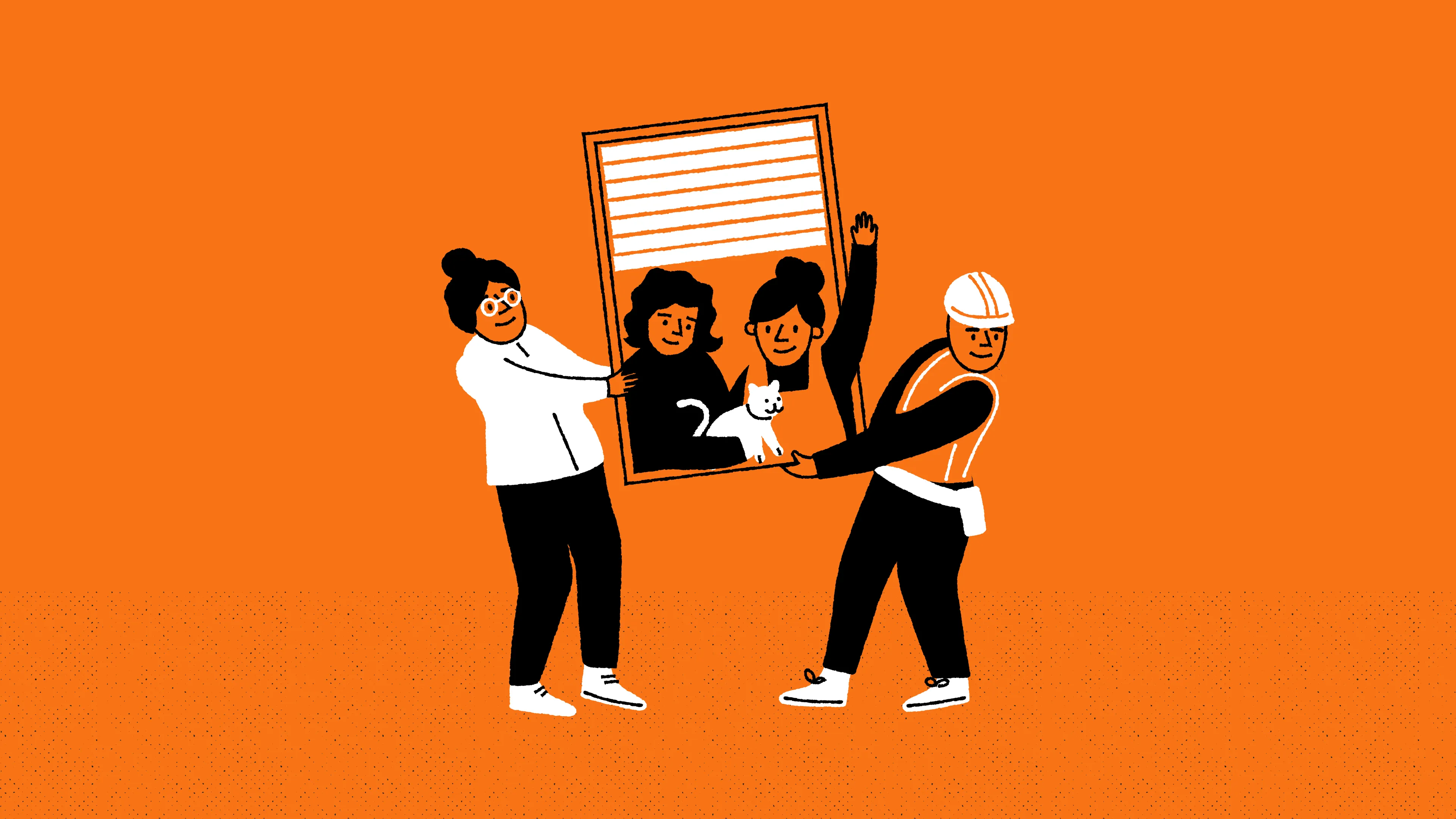First Homes Scheme
Find out how you could be eligible for a discount of between 30%-50% on your first home.
Your home may be repossessed if you do not keep up repayments on your mortgage.
Exclusive broker partner to

Author: Michael Whitehead Head of Content
9 mins
Updated: Nov 16 2025
Author: Michael Whitehead Head of Content
9 mins
Updated: Nov 16 2025
On this page
Please be aware that by following any external links you are leaving the Haysto website. Please note Haysto nor HL Partnership Limited are responsible for the accuracy of the information contained within external websites accessible from this page.
On this page
The First Homes Scheme is designed to make homeownership more accessible to first-time buyers in England. In our guide, we take an in-depth look at how it works, who can apply and why Haysto could help make your first mortgage possible when other brokers can’t.
What is the First Homes Scheme?
The First Homes Scheme* is a government-backed initiative launched in June 2021. It aims to help first-time buyers purchase homes at a significant discount, particularly those on lower incomes or working in key public sector roles.
Under the scheme, selected new-build homes are sold at a minimum 30% discount compared to their market value. Local councils can increase the discount to 40% or even 50%, depending on regional housing needs. This discount remains with the property, meaning future buyers will benefit from the reduced price.
The scheme forms part of the government’s broader strategy to tackle housing affordability issues, ensuring a wider demographic can access homeownership.
How Does the First Homes Scheme Work?
The scheme applies to new-build properties that are part of the First Homes program or to properties previously bought as new through the scheme and now available for resale. Here are the key points to be aware of:
Discounted Pricing. Properties are sold with a minimum discount of 30% off the market price. For example, if a home is valued at £250,000, buyers under the scheme would pay £175,000 (£250,000 x 30% = £75,000).
Price Cap. After the discount, the property’s sale price cannot exceed £250,000 (£420,000 in London). This ensures the scheme focuses on affordable housing.
Priority for local workers. Councils can prioritise key workers (e.g., teachers, nurses, police officers) or residents with strong local ties.
Mortgage Requirement. Buyers must take out a mortgage covering at least 50% of the discounted price. The scheme is designed for those needing financial assistance rather than cash buyers.
Resale Restrictions. When selling a First Homes property, the same percentage discount must be applied to the next buyer. For instance, if the home was initially purchased at a 30% discount, it must be resold with a 30% discount off its current market value.
Who is Eligible for the First Homes Scheme?
As the name suggests, you must be a first-time buyer and not currently own or have owned a property previously to be eligible for the First Homes Scheme. If you’re buying on a joint basis, you both must be first-time buyers.
Other criteria are as follows:
The scheme is currently only available on properties in England
The home you buy must be used as your primary residence
Your household income must not exceed £80,000 per year (£90,000 in London).
You must be at least 18 years old and a resident in England.
A mortgage** must cover at least 50% of the property’s purchase price. So if, after the discount, the property you want to buy costs £240,000, you must be able to secure a mortgage for at least £120,000.
In most cases, a minimum 5% deposit, based on the discounted price, will be required for the mortgage.
Councils can usually give priority to key local workers in the area for the first three months that a property is listed for sale.
**To secure a mortgage, you’ll need to pass a mortgage lender’s affordability assessment and standard lending criteria. To find out more about this, read our guide: What Mortgage Lenders Look For In Applicants.
Access Your Credit Report
To get a full view of your credit information from all three agencies, use Checkmyfile free for 30 days, then £14.99/month (cancel anytime).
Get Started NowAre all mortgage lenders participating in the First Homes Scheme?
No, as the scheme is relatively new, not all lenders have agreed to participate, including most high-street lenders. However, the current list includes well-known names such as Halifax, Leeds Building Society, and Pepper Money and is set to grow quite quickly as more qualifying homes become available.
As there’s a limited list of lenders currently offering First Homes Scheme mortgages, it’s recommended that you speak with a mortgage broker first (like us!) rather than trying to approach a lender directly.
Your mortgage broker will be able to identify which lenders are available for the scheme and provide you with the right guidance towards the lender who offers you a better chance of success based on your personal situation.
If you make an enquiry, one of our Mortgage Experts will contact you to get started.
How Do You Apply for the First Homes Scheme?
If you’re ready to buy your first home and have checked you’re eligible for the First Homes Scheme (first-time buyer status, income cap, etc.), the process is as follows:
Apply for a Decision-In-Principle
Before you start looking at properties, it’s a good idea to know how much you can borrow for a mortgage. Applying for a decision-in-principle doesn’t guarantee your mortgage, but it provides a figure of how much you could borrow and a basis for the property values you can search for.
This is a particularly important step for first-time buyers who have never navigated the home-buying process before. Your mortgage broker can help you with all the information required to make a decision in principle.
You can use our repayment calculator to get a quick snapshot right now of how much you might be able to borrow for a mortgage.
Find an eligible property and submit an application
Search for new-build homes designated as First Homes on developers’ websites or through local estate agents. These homes will be clearly marked as part of the scheme.
Once you’ve found a property you want to buy, and it falls within the scope of how much you can borrow for a mortgage (plus whatever deposit you have), you should speak to the property developer or estate agent responsible for the sale. They will guide you on submitting your application for the first homes scheme.
You’ll likely need to produce several documents, such as:
Proof of identity (e.g., passport or driving license).
Proof of income (e.g., payslips or tax returns).
Your mortgage decision-in-principle.
Your conveyancing solicitor’s details
Evidence of local connections (if required).
The developer and local council will review your application. Once approved, you can proceed with the purchase, just like buying any other property. Be aware that the developer may request a reservation fee (deducted from the total price) to secure the property. This fee should be refundable if your application is unsuccessful.
Apply for your mortgage and complete the purchase
At this stage, you’ll need to submit your mortgage application and work with your solicitor to finalise all the necessary legal documentation and conveyancing requirements. The property’s First Homes discount and conditions will also be included in your legal documents.
This is where we can help! Our team of Mortgage Experts can:
Guide you through the mortgage application process from start to finish, including choosing the participating lender most suited to offering the approval you need based on your circumstances.
Help you download your credit reports to ensure no issues are registered, which could hamper your chances of getting a mortgage. If there are any issues, they’ll be able to identify specialist lenders who can still help you.
Provide recommendations for all your conveyancing requirements and offer advice on what insurance cover you may need for your mortgage repayments.

Let's Get Started
We Make Mortgages Possible
Our Mortgage Experts are fully qualified with experience in bad credit, self-employed and complex mortgages. They have a proven track record of getting mortgages for people who’ve been rejected elsewhere.
Get Started Now Get Started NowPros and cons of the First Homes Scheme
Like any government initiative, the First Homes Scheme has benefits and drawbacks.
Benefits
Significant Savings. The discount makes homeownership more affordable for first-time buyers, especially in high-demand areas.
Accessibility for Key Workers. Local councils can prioritise essential workers, helping them live closer to their workplaces.
Long-Term Affordability. The discount applies to all future sales, keeping the property affordable for subsequent buyers.
Encourages Homeownership. By targeting first-time buyers, the scheme helps people take their first step onto the property ladder.
Drawbacks
Limited Availability and high demand. Only specific properties are eligible, and supply may be limited in some areas. The scheme’s popularity may also lead to stiff competition for available properties.
Resale Restrictions. The mandatory discount on resale could limit potential profit, deterring buyers looking for long-term investment returns.
Income and Mortgage Requirements. The income cap and mortgage condition might exclude buyers with an irregular income, such as the self-employed.
Local Criteria. Additional conditions set by councils could make it harder for some individuals to qualify, particularly those moving from outside the area.
What Are the Alternatives to the First Homes Scheme?
If the First Homes Scheme isn’t suitable for your situation, several other alternatives are available:
Shared Ownership. This scheme allows you to buy part of a new property - usually between 25% to 75% - and then pay rent to a housing association on the remainder. The deposit you pay is based on the amount you buy, not the total property value.
Deposit Unlock. Offers you the opportunity to buy a brand new home with just a 5% deposit and use a 95% loan-to-value (LTV) mortgage for the remainder. This scheme is backed by a mortgage indemnity, paid for by developers, to encourage more lenders to offer higher LTV lending on new properties.
Mortgage Guarantee Scheme. Similar to Deposit Unlock, but backed by the government, it also offers someone with a low deposit (minimum 5%) the chance to get onto the property ladder. Unlike Deposit Unlock, you can consider buying either new or pre-existing properties.
Standard residential mortgages. Saving for a deposit and securing a mortgage without relying on government schemes remains a viable route. While this can take longer, it offers unrestricted choices when buying a home.
Can you get a First Homes Scheme mortgage with bad credit?
Yes, it’s possible. It really depends on what type of bad credit issue you’ve had, the amounts involved, and how much it has affected your credit score since it happened. Choosing the right participating mortgage lender will also be very important.
So, for example, one late payment registered three years ago would be much less of a concern than receiving multiple County Court Judgments (CCJs) within the last twelve months. You may have to pay a slightly higher interest rate and be limited on how much you can borrow, but it’s worth speaking to a broker to find out all your options.
How Haysto could help make your first home possible
The First Homes Scheme offers an excellent opportunity for first-time buyers, particularly key workers and those with local ties, to become homeowners.
However, its limitations mean it won’t necessarily suit everyone, and other alternatives such as Shared Ownership, Deposit Unlock or a traditional mortgage could offer a better path to buying your first home. This is where we can help!
Our mortgage team understand how all of the initiatives for first-time buyers work and who they’re best suited for. They’ll be able to help you make an informed decision that’s right for you and your circumstances.
Just make an enquiry, and one of our mortgage experts will contact you to start the process.
We Make Mortgages Possible
Our Mortgage Experts are fully qualified with experience in bad credit, self-employed and complex mortgages. They have a proven track record of getting mortgages for people who’ve been rejected elsewhere.
Get Started NowRelated Articles

How To Work Out Your Mortgage Repayments
Find out everything you need to know about how mortgage repayments work and what factors affect how much you pay.
Read guide

How To Find Your Credit Score
Learn all about how to find your credit score so you can understand what information is kept on your credit report before applying for a mortgage.
Read guide

Why You Should Use a Mortgage Advisor
Find out everything you need to know about why using a mortgage advisor can boost your chances of getting the mortgage you need with the most competitive rates.
Read guide
Information
Tools & Guides
Haysto, a trading style of Haysto Ltd, is an appointed representative of HL Partnership Limited, which is authorised and regulated by the Financial Conduct Authority.Registered Office: Haysto, Crystal House, 24 Cattle Market Street, Norwich, NR1 3DY. Registered in England and Wales No. 12527065
There may be a fee for mortgage advice. The exact amount depends upon your circumstances but will range from £599 to £1599 and this will be discussed and agreed with you at the earliest opportunity.
The guidance and/or information contained within this website is subject to the UK regulatory regime and is therefore targeted at consumers based in the UK.
Your home may be repossessed if you do not keep up repayments on your mortgage.







